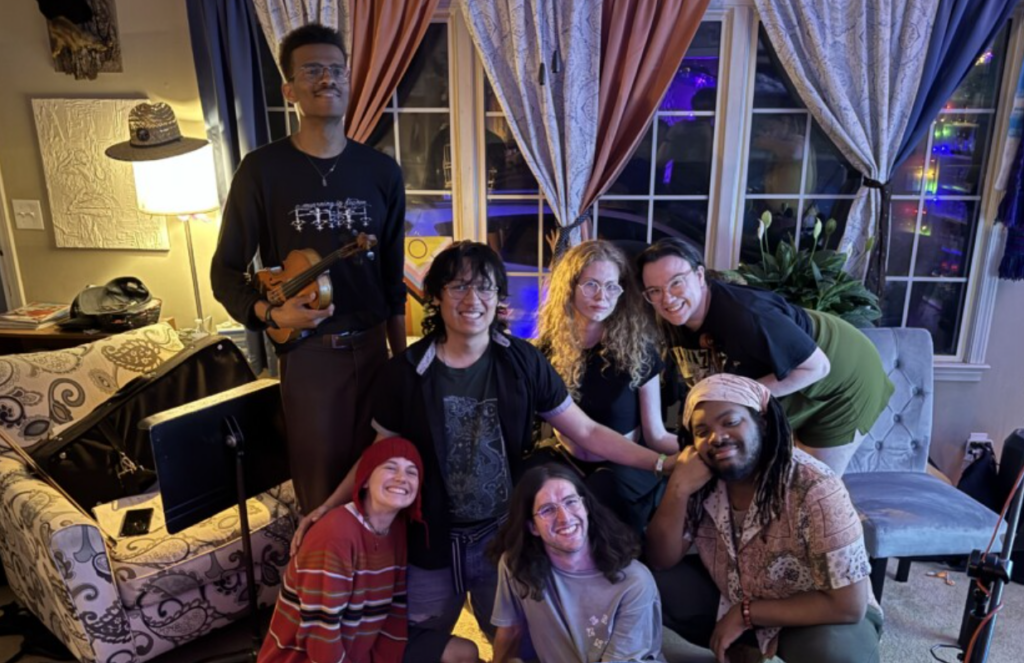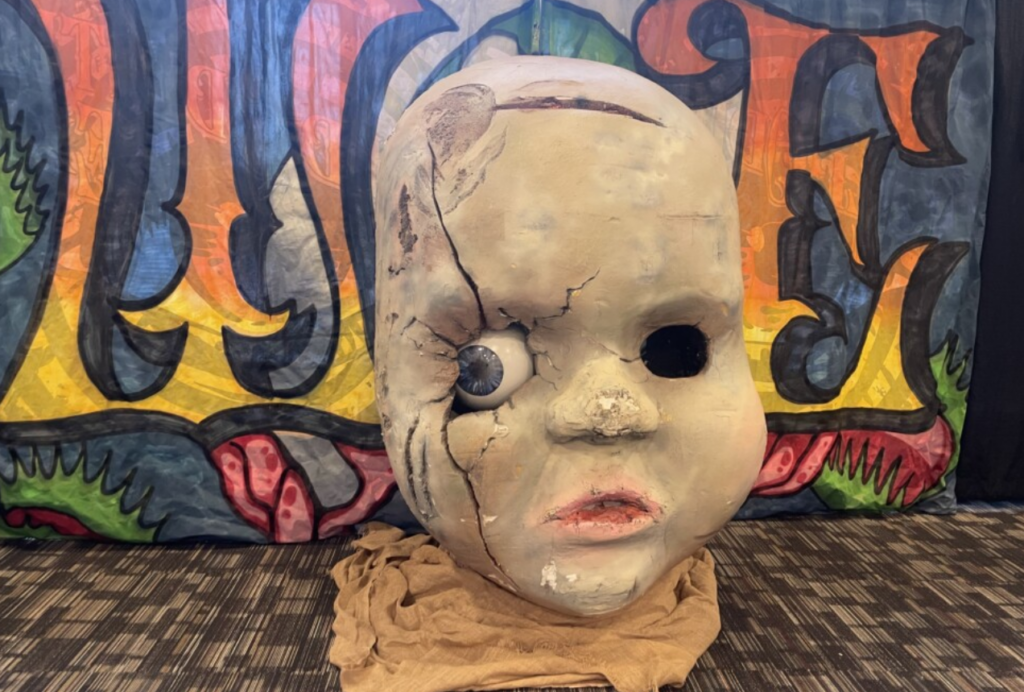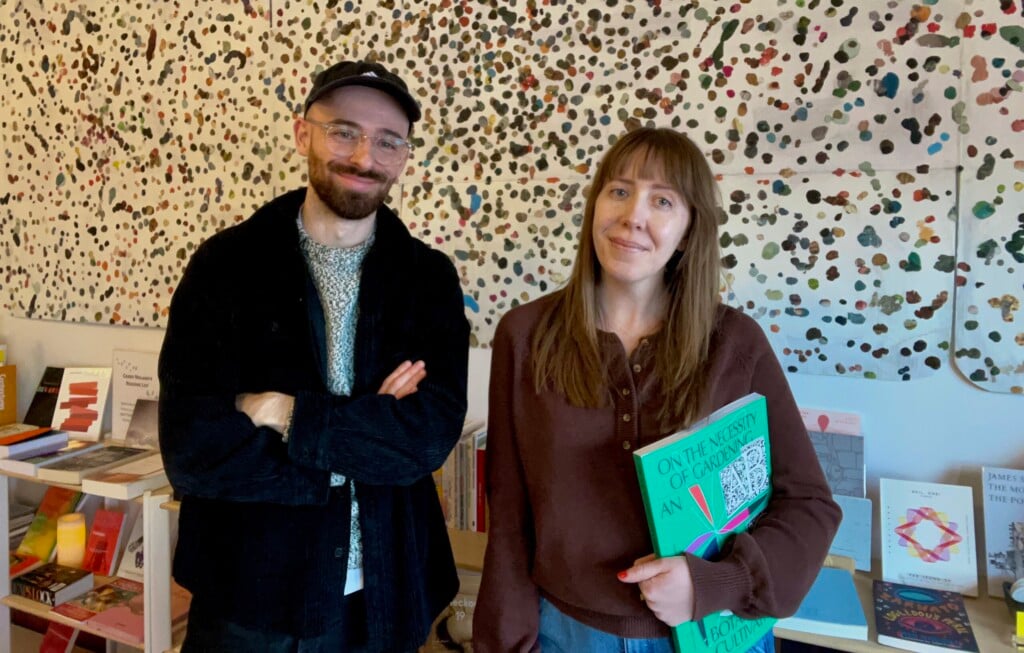Jury Duty is a transcendent docu-sitcom that gives us The Office by way of Nathan Fielder
An interview with cast member Ross Kimball—sorry, EMMY NOMINEE Ross Kimball.
This week, Jury Duty was announced as an Emmy-nominated show for Best Comedy of the year. This lined up nicely for us, alongside a full season rewatch that coincided with the 4th of July holiday. After all, what could be more patriotic than skewering the American judicial system? Or, in sincerity, the idea that we are indeed still a country functioning on a system where anyone, anywhere can be asked to put aside their life for a few weeks and make destiny-altering decisions in matters previously foreign.
If you haven’t caught Jury Duty yet, you owe it to yourself to find it this weekend, as it’s easily one of the year’s funniest offerings. Placed alongside its fellow Emmy nominees, it’s certainly one of the only “comedy” releases to be funny and not just prestige TV with comedic actors. It’s also free, over on Amazon’s Freevee platform, so there’s no wall between you and the best five hours of television so far in 2023.
The show, produced by some of the names responsible for the early American seasons of The Office, is a documentary following twelve jurors, two alternates, lawyers, defendants, and a judge through a single court proceeding. While everyone is aware of the presence of a small film crew capturing these events, what is not common knowledge is that every person here is an actor, save one man: Ronald Gladden. Gladden thinks he’s doing his service as an American citizen, unaware that he’s starring in his own version of The Truman Show, where his every waking moment is being manipulated, documented, and inevitably bending to his will.
It’s The Office by way of Nathan Fielder’s The Rehearsal.
Jury Duty as a finished season of television could have rested on its laurels as been a minor miracle in merely crossing the finish line. Despite heavy scripting and rehearsing from the cast, the need to “bank reality” in order to cash in on the wild eccentricities, twists, and turns herein is nothing short of miraculous reading of the situation and improvising, from the biggest name Hollywood star down to the guy pretending to be a janitor. The idea of pulling off a sitcom off this caliber, including stunts and impossible situations, without a main character knowing they are even on TV is already such a degree of magic that the full season has been re-released, now with optional commentary tracks on each episode, so that the actors, producers, and Gladden himself can walk you through how each moment came together. Truly, in the streaming-age, this is the first “must listen” director’s commentary available for a TV series.
Again, the show would be worth celebrating for what it accomplishes simply by keeping it’s own secret long enough to play out all of its maniacal threads. The true maker of transcendent entertainment here is Gladden himself.
While the hidden camera nature of the show probably has possible viewers dismissing it for fear that it’s simply another Jamie Kennedy Experiment or Impractical Jokers, the heart and soul of this production rests on the person who didn’t know he was involved in a production at all. While the earliest episodes have a few moments that are certainly jokes that come at his expense, it’s impressive how quickly Gladden’s personality, ethics, choices, and goddamned unending heart pivots the show to where the performers have to be on their own heels in defense. No one involved was prepared for a guy this astoundingly kind to be the focus of an extended prank, and his humanity is both the source of tremendous comedy but also genuine awe. There’s no explanation for how this all fits together to become what it does.
With four Emmy nominations now heaped onto Jury Duty and the new full season commentary available, we sat down with actor Ross Kimball who plays “Ross Kubiak” to discuss being the ultimate Wife Guy, a cut storyline of close-up magic, and the process of making this year’s most unexpected television show.
The Pitch: Ross, how’d you fall into this one and when did you shoot this?
Ross Kimball: We shot this exactly a year ago. It was a blur because everything was so focused. And because we felt like we were going to get caught every day. So all the dates and moments blur together.
What did you tell people when you disappeared for a couple of weeks there? Did you tell anyone afterward or did you have to just pretend that time period away for a year?
I told them I was on a ‘documentary-type show’ and during pandemic it was pretty easy to disappear for long stretches of time and not have people get too suspicious. I have my wife and kids and so most people thought I was probably busy with that. For everyone else I just called it a generic shoot, but maybe I’d mention there was a celebrity I was hanging out with every day. I did say it was a documentary style thing about the jury system, so I was honest, but that’s all I could say.
That does sound… generic to the point of being boring. The perfect cover?
Not the sort of thing people were picking apart. I wanted to tell people that it was going to be very cool, but like, there was no way to do that.
Nothing screams ‘comedy’ quite like ‘documentary-adjacent judicial bureaucracy,’ amiright?
Fun, real fun.
What did auditions for this look like?
To get this role, it was very generic. I improvised three different character types on a video I sent in.
Then there was a callback that took the form of a focus group. There were people in the room that were actors but there were also people brought in that were just real people, told they were there for a focus group. They wanted to see how our characters would work alongside real people. So they showed us the trailer for the new West Side Story film and asked for impressions from the group. My character had three things I was supposed to hold onto and decide how to work into this long discussion: I really like magic. I love pranks. And I love my wife. So I’m holding onto that information and I gotta say that I had no idea who in that room was an actor and who was a normal person, because everyone there was out of their minds.
There was a guy taking a phone call next to me. In the middle of us talking about West Side Story, he just started taking phone calls. I thought “Oh, this actor is going a little too hard with his stuff. He was given that prompt and he’s not making it work.” I found out at the end of the day that this dude on the phone wasn’t an actor, that was just a guy who behaves like that in the real world—when he thinks he’s being monitored in a focus group.
When we got to the show itself I kept my first name, Ross, but went for a different last name of Kubiak. I was told I was a P.E. teacher and I love my wife. I was given some other things I was going to try to work in, but those traits had to pivot based on how Ronald reacted to us. If I was try something and he didn’t care about it or connect to it, we just said oh okay we can drop that and focus on something else.
Before the show filmed, we ran the entire series as a rehearsal, as a full cast minus our main juror. We had to work it to the point where we could run it without any breaks or cuts. In mentally preparing for the real thing though, there was just no way to get comfortable. You felt like a spy and you were sure, every minute of every day, that you were gonna get caught. But you wanted to see this story play out because, like, there were people who saw the trailer whose first reaction was “Oh, a prank show! What kind of crazy stuff do you do to that guy?” And the answer is that no, it’s not a prank show, this is a hero’s journey. We were setting him up for success. But that came down to him, and everyone around him, making tough decisions throughout.
In prepping the season, you had outlines for what would happen each day, and some scenarios mapped out based on what decisions your main actor would wind up making in the moment. I know that the takeaway from our household on first watch was “Ronald has no idea when this show airs that he’s about to clean the fuck up on Bumble,” but did anyone prep for the alternative? Were there scripted conditions for what happened if it turned out your leading man was a piece of shit? Or worse, was a good person but whose (easily understandable choices at some points) would make him look terrible? Was there any back-up plan for what happened if this veered into “prank show” territory?
There was so much that could go wrong that we just placed a lot of trust into the person they picked to be the center of this. Obviously we were all making decisions and there was some amount of cover in the idea that he knew he was being filmed for a documentary, so for some things it would make sense for a producer to come in and tell someone that they needed to hide a microphone or something like that. But for example the first few days, where there’s a lot of hidden camera work, the planning had to be meticulous because the whole thing would fall apart if he, say, sat in the wrong chair. You’d be sweating, not just thinking he was figuring out that any part of this was staged, or that you might be screwing something up, but you were also sweating these tiny imperceptible details like “Oh no, he’s in the wrong chair right now.” The stress on so many levels was… it was not like any other acting job I’ll ever have.
And that’s the same for everyone else at the court house. You’ve got this very Truman Show thing happening where it isn’t just a jury, it’s an entire courthouse full of people going on about their day who are all very aware of, say, the current chair situation. Sometimes, if he was standing in the wrong place, you could just feel it in the air as everyone was trying not to focus on it.
But to the major choices presented to Ronald? There are certainly places where he very well could have stopped and said “Hey what’s going on?” or “Guys, this is weird…” For us to do this, certain tasks just needed to get done. But there were moments, and we each had them, where he’d turn to one of us individually, and he’d lean in, and you could feel it coming. You were sure this was it. There’s a rush of terror and you’re sure he’s about to tell you “Hey man, I know what this is.”
You did the Stanford Prison Experiment but it came out to be It’s A Wonderful Life. It’s weirdly destroyed me by giving me more faith in humanity than I had a month ago. I didn’t expect that from a TV series on Freevee. I’d love to know more about what kind of net you were performing above here, in terms of having to make things work live with no opportunity for redos. If you fuck up a line you might fuck up and cancel a show, yet you’ve got stunt actors pulling up ridiculous injuries mere feet from someone who can’t know that this is being staged. How do you pull that off?
There’s a lot of internal panic. You see me hanging out in the back and hanging back a lot, because we all know the storyline has to happen. There’s a mix in that room, people who are improvisers by trade and a few just straightforward actors. Our actor who has to do the major stunt fall early in the show is an actual stuntman. I worked close because I was supposed to be the first person to arrive to help him, and that’s kinda how it came out on the day. When you’re doing all this stuff, this wildness, you have to be focused and aware of everything going on. You’re living out this character and you’re having your own side conversations where you need to be fully invested, but you also need to be fully invested in seeing how two other things are playing out, and being prepared in your response for what a wild card main point man could do at the drop of a hat.
There’s a lot of trust required from that. You have to trust all the people around you, on a number of levels. Which I did. Everyone they put here was selected for a reason, and as a team we had to work so hard together, while also pretending every day that we didn’t know or care about each other.
Personally, I tried my best not to mention my real life because I didn’t want that to bleed into the show. Some people in the cast had minor slip-ups that thankfully didn’t bring the whole thing crashing down, but they’d call each other by the actual real world name instead of their character names. Ronald only noticed one or two of those and we had to come up with good reasons to explain those away. We’d go with something like “Oh, that’s the name of a friend of mine who I’m missing right now while we’re sequestered; I don’t know why I have his name on my brain.”
Ronald was just so affable. So understanding and kind. It’s fascinating to try to roll with comedy when you’re encountering prompts based on a heart that big, and that was a challenge to not mess up. Especially because we’d have to do small fixes all the time. If Ronald sat in the wrong place for the hidden cameras, we’d need to find a way to get him to move and make it feel natural, or sometimes we’d be in a tight spot because the wording on something wasn’t efficient. For major changes, you’d have one of the bailiff characters pulling us out of the room to go talk to producers who would explain what we needed to fix or rework.
To echo what you said though, it sincerely does re-instill faith in humanity, just watching Ronald be Ronald. We didn’t have to pull for him or hope that he made a choice that wasn’t embarrassing or complicated—he was always one-upping us. It’s a reminder that a little kindness can surprise everyone, including I think, yourself.
He’d go back to the hotel and shoot these little videos, these diaries. He couldn’t believe what was happening but he would never call it out for being fake, it just kept going and feeling surreal but somehow still natural. It’s like that guy with me in the group session for the audition. Just a guy who is very real and goes about his life taking loud phone calls no matter what he’s doing. There’s something very understandable about this whole thing because it does represent the whole swath of humanity. It’s very American to see this many people acting this ludacris and faced with such bizarre situations and just say “Huh, well I guess that’s what’s happening.”
What was the thing that happened on shoot that surprised you most; that went furthest away from any outline plan?
No one got sick. No one got a cold or anything. That could’ve ruined everything. No one quit, which is surprising because again, the sheer pressure of this, even for background people, was just constant. There were people in this hired to do just very background work in this world, but they just decided to go the whole distance. There’s a janitor that you’ll see very little of in the finished show. He’s an actor, not a janitor, but he really wanted to build this world. So even though he’s almost never on camera, he was cleaning toilets and sinks, hanging out in the bathroom. Because yeah, if Ronald suddenly had to run to the bathroom or something it would be weird if the halls were empty in this bustling courthouse, and no one was doing anything.
Was this a much harder comedy gig than you expected?
Yes. I’ll say yes to that. I mean, there’s plenty of times I just made it hard on myself because I was so in my head about it. But it was mentally and physically taxing. It’s a working shoot so you’d have to eat lunch at 8 a.m. as a cast, but then we’d eat a second lunch in front of Ronald, like, three hours later to make sure everything was on the up and up, both for union rules but also for believability.
I spent a lot of time working on parts of my character that didn’t even make it into the show. I was supposed to be this prankster type guy. I had a backpack full of chattering teeth. Whoopie cushion. I was supposed to be that guy.
That… does not seem like it would have fit with Ronald’s reality. Or maybe it would have, just like so many other things?
Yeah, this is better. I think he would’ve asked why I was acting like this. Oh, I was supposed to be good at close-up magic, that was going to be part of my schtick. Brock, I don’t know any magic. I wanted to have a deck of card where I kept trying to do magic and simply could not understand why I was so bad at this. But that was dropped because it wasn’t something Ronald wanted to focus on.
Did it start to feel like Ronald was running the show?
There were times I’d go to the bathroom with someone and we’d both look at each other like “I think he knows?” We worried the show might be a prank on us, because he started hitting all these marks. There were three days in a row where he did everything we’d hoped for, and that was too much. Sometimes he would wind up saying things that were basically in the script, and it would freak us out. We started to become very skeptical of our own show at some point, a little paranoid.
I was very luck to sit behind him. In between breaks, we’d have these moments where lawyers would be talking to the judge in his quarters, but that would just be opportunities for me to make small talk with him about everything from who he was dating to whether he’d be getting a dog soon, and I’d build my background of my character. I hit certain points. I just kept talking about my wife, to the point where he would start rolling his eyes or want to change the subject. Then I’d take it back to talk about my wife. I kept doing that even though it drove him crazy, because I was building up towards a payoff five days later when a twist comes.
What’s it like to watch the finished show now, knowing that it’s reduced each day to 30 minutes of an episode and hours and hours of your work disappeared?
There’s so much inside stuff. While Ronald was engaged with other characters, the rest of us were always having our own conversations, building our own characters. Some of these actors were just incredible characters. There are full multi-hour arcs with diagrams where someone explains how their parents died or how they’re working to become a robot. And then there’s James Marsden, who just played the best Hollywood version of himself. You could build an entire show just out of all the weird little name drops and anecdotes he let loose. It became confusing because I wasn’t sure if he was telling me a real story about Keanu Reeves or something completely fictional. Some of those I’m not going to bother asking him to clear up, I think I prefer thinking they’re all true.








